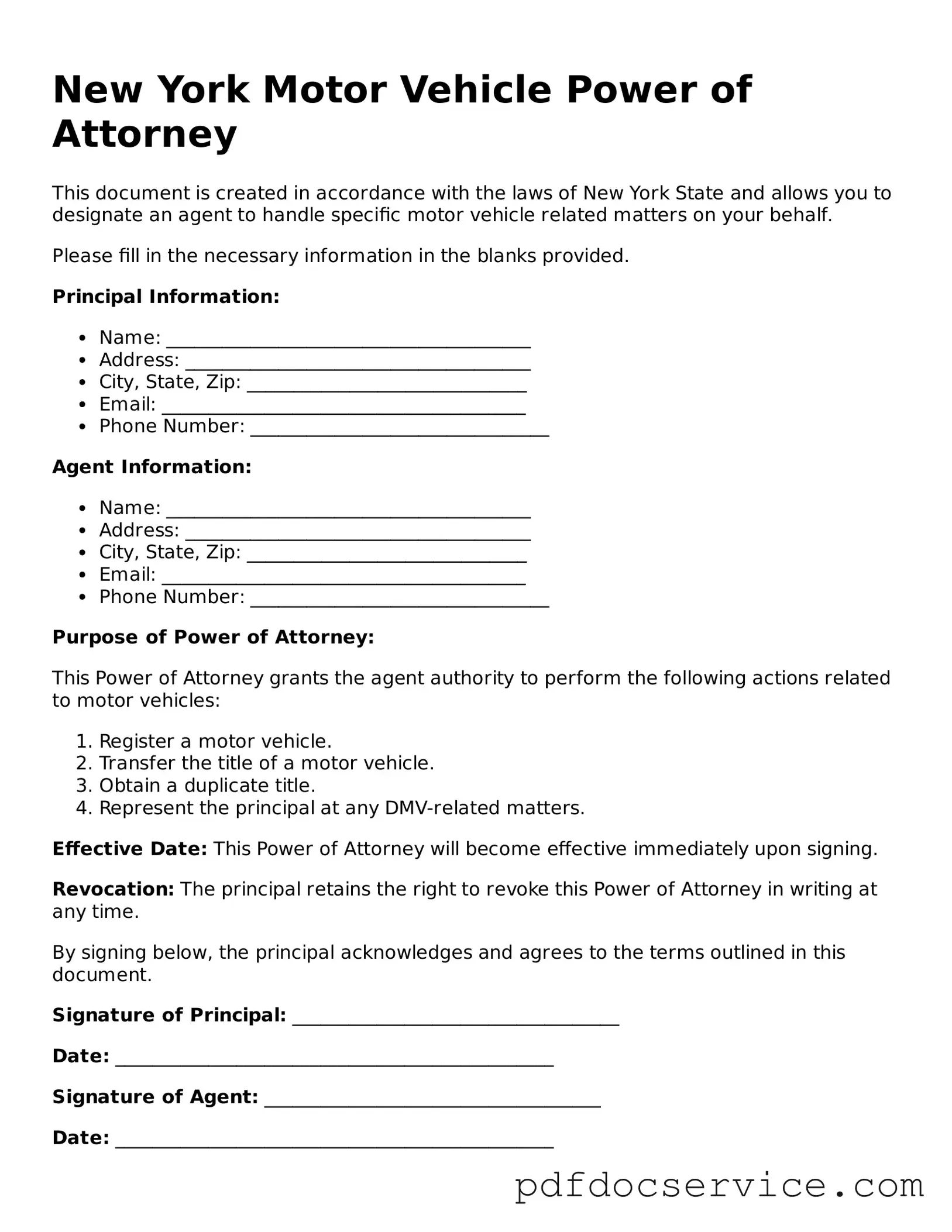Printable Motor Vehicle Power of Attorney Template for New York
The New York Motor Vehicle Power of Attorney form is a legal document that allows one person to authorize another to act on their behalf in matters related to motor vehicle transactions. This form is particularly useful for individuals who may be unable to handle these matters themselves due to various reasons, such as being out of state or having health issues. By completing this form, you can ensure that your vehicle-related affairs are managed smoothly and efficiently.
Open Motor Vehicle Power of Attorney Editor

Printable Motor Vehicle Power of Attorney Template for New York
Open Motor Vehicle Power of Attorney Editor

Open Motor Vehicle Power of Attorney Editor
or
Get Motor Vehicle Power of Attorney PDF
Finish the form now and be done
Finish Motor Vehicle Power of Attorney online using simple edit, save, and download steps.